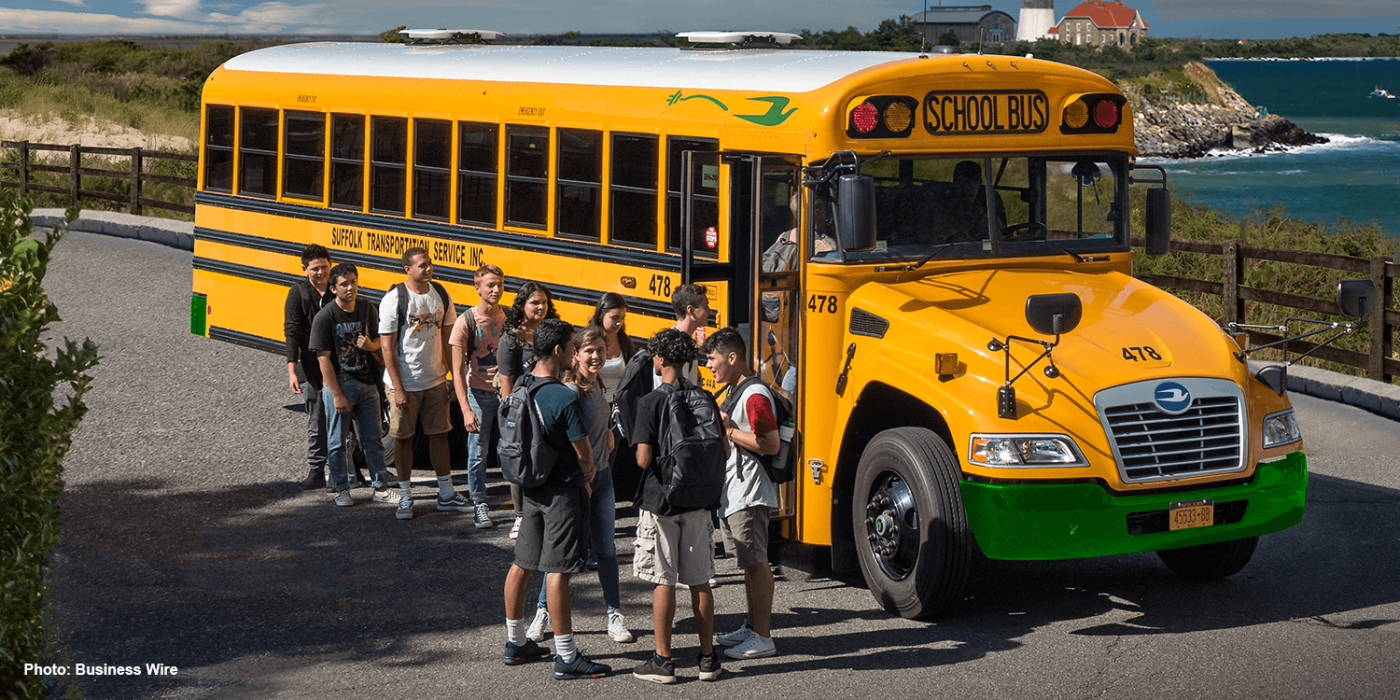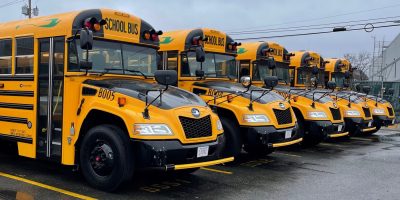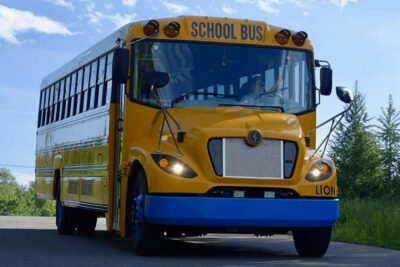Boston to replace all 700 school buses with electric buses
Boston wants to replace its fleet of more than 700 school buses with electric vehicles by 2030, starting with 20 buses taking kids to school during the next school year. The move is part of the city’s Green New Deal, which includes converting much of its vehicle fleet, not only school buses.
++ This article has been updated. Kindly continue reading below. ++
“Transportation represents the second-highest source of emissions across our city and the first, highest, source of emissions if you look statewide,” said Boston Mayor Michelle Wu when announcing the measure. According to the mayor’s office, Boston Public Schools (BPS) currently has 739 buses, constituting eleven per cent of the city’s municipal emissions.
The program now announced will run as an electric school bus pilot program, with BPS deploying 20 buses during the 2022-2023 school year.
Officials estimate the first 20 buses will cost seven million dollars and be paid for with funds from the school department’s operating budget and federal coronavirus stimulus funds.
The goal is to deploy the new buses within eight to ten months. Details on the vehicle maker or possible tender process have yet to be disclosed. However, with states looking to decarbonise school buses, there are options such as Blue Bird or Canada’s Lion Electric.
The initial procurement in Boston is the first step toward full electrification of the school bus fleet by 2030. Longer-term, BPS will work to replace additional big buses each year and then move to replace smaller buses until the entire fleet is electrified, so the statement.
“This is absolutely the right move,” said Staci Rubin, VP of environmental justice at the Conservation Law Foundation, an environmental group. He also called for the deployment to prioritise economically-challenged communities first.
Mayor Wu also recommitted to growing Boston’s green jobs workforce by launching the electric vehicle (EV) “train the trainer” program. In autumn, electric vehicle maintenance will be added to the core curriculum for students participating in the Madison Park Automotive Technology program.
The scheme enables the City’s Central Fleet Management team to train students and City fleet managers in electric vehicle maintenance, soon becoming part of their job. The city runs 1,200 vehicles and 700 school buses, all of which will be replaced with zero-emission vehicles in the Green New Deal.
In terms of EV charging stations throughout Boston, the city has 66 active EV charging plugs for public and municipal use. In December 2021, Mayor Wu announced that another 15 charge points are planned for installation in 2022 and early 2023.
Update 26 April 2023
Boston Public Schools has put its first 20 electric school buses into service just as planned when announcing full fleet electrification a year ago. The new zero-emission vehicles built by Blue Bird now bring over 2,500 students to and from 42 schools every day.
The Blue Bird Vision electric buses can carry 71 students for up to 120 miles on a single charge. The vehicles take approximately four hours to charge from 0% to 100% on BPS’s Level III (30 kW) fast-chargers installed at their Readville, MA bus depot.
The pilot program is the first step of the school district to turn its entire bus fleet of 750 vehicles to electric, as reported above. School officials and local government leaders hail the pilot program as the largest electric school bus deployment in the Northeast.
“We are thrilled by this historic partnership,” said Mary Skipper, Superintendent for Boston Public Schools. “This pilot program is an important step in our work towards a fully electric fleet by 2030 as part of the Green New Deal for Boston Public Schools.”
Boston is by far not the only district working towards electric school buses. The EPA only this week released the next charge of funding through its Clean School Bus scheme. Applications for grants are open until 22 August 2023.
boston.gov, boston.com, bostonherald.com, businesswire.com (update April ’23)




0 Comments